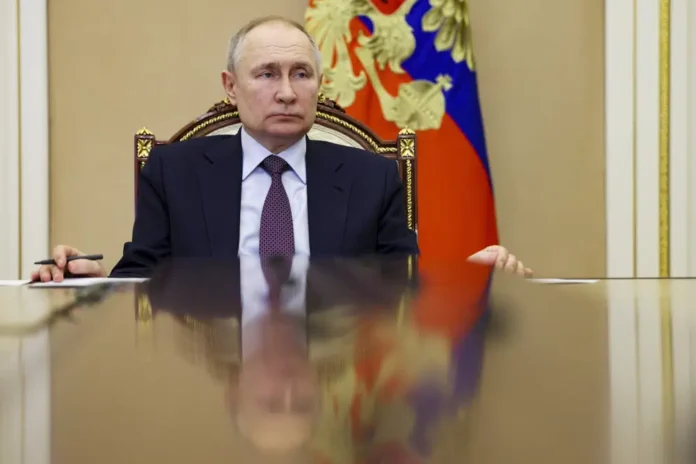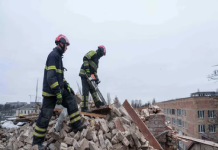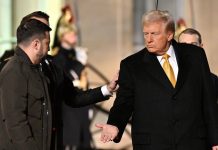THE HAGUE, The Netherlands (AP) – An international arrest warrant for President Vladimir Putin increases the chances of the man who had a country invading Ukraine going to trial, but complicates efforts to end the war with peace talks.
Today justice and peace both seem distant possibilities. These two rivalries of his are the dilemma at the heart of his March 17 decision by the International Criminal Court calling for the arrest of the Russian leader.
The Hague judge found “reasonable grounds to believe” that Putin and his Children’s Rights Commissioner were responsible for war crimes, particularly the illegal deportation and illegal transfer of children from the occupied territories of Ukraine to Russia. ” was found.
While I doubt Putin is sitting in a courtroom in The Hague, other heads of state are being tried in international courts.
Serbian former strongman Slobodan Milosevic, a driving force in the 1990s Balkan wars, was tried in a UN tribunal in The Hague for war crimes, including genocide, after his fall from power. He died in solitary confinement in 2006 before a verdict was given.
Serbia, which aspires to join the EU but has close ties to Russia, is among the countries that have criticized the International Criminal Court’s action. Populist Serbian President Alexander Vucic said the arrest warrant would “have disastrous political consequences” and create “huge resistance to talk about peace (and) a ceasefire” in Ukraine.
Putin appears to be firmly in power, and some analysts have suggested that an arrest warrant hanging over him could be an incentive to prolong the fighting.
“President Putin’s arrest warrant could undermine efforts to reach a peace deal in Ukraine,” Daniel Kurkmalic, an associate professor of political science at Northwestern University, told the Associated Press in an email.
One potential way of easing the way to peace talks could be for the United Nations Security Council to call on the International Criminal Court to suspend the Ukraine investigation for a year, which is allowed under Article 16 of the Rome Statute treaty that created the court.
But that appears unlikely, said Krcmaric, whose book “The Justice Dilemma,” deals with the tension between seeking justice and pursuing a negotiated end to conflicts.
“The Western democracies would have to worry about public opinion costs if they made the morally questionable decision to trade justice for peace in such an explicit fashion,” he said, adding that Ukraine also is unlikely to support such a move.
Russia immediately rejected the warrants. Kremlin spokesman Dmitry Peskov said Moscow doesn’t recognize the ICC and considers its decisions “legally void.” And Dmitry Medvedev, deputy head of Russia’s Security Council, which is chaired by Putin, suggested the ICC headquarters on the Netherlands’ coastline could become a target for a Russian missile strike. Carnegie Endowment analyst Alexander Baunov said Putin’s arrest warrant amounted to “an invitation to the Russian elite to leave Putin” and could undermine his support.
Arrest warrants for Putin and his children’s rights commissioner were welcomed, but human rights groups urged the international community to remember to seek justice in other conflicts.
“The ICC’s arrest warrant for Putin represents a progressive, multi-pronged judicial effort that is needed elsewhere in the world,” Barquiz Jarrah, deputy director of international justice at Human Rights Watch, said in a statement. “Similar judicial initiatives are needed elsewhere to ensure that victims’ rights are respected around the world, including Afghanistan, Ethiopia, Myanmar and Palestine.”
Sunday, February 1, 2026
More
© London Post, All Rights Reserved by Independent Media Group UK Limited.






